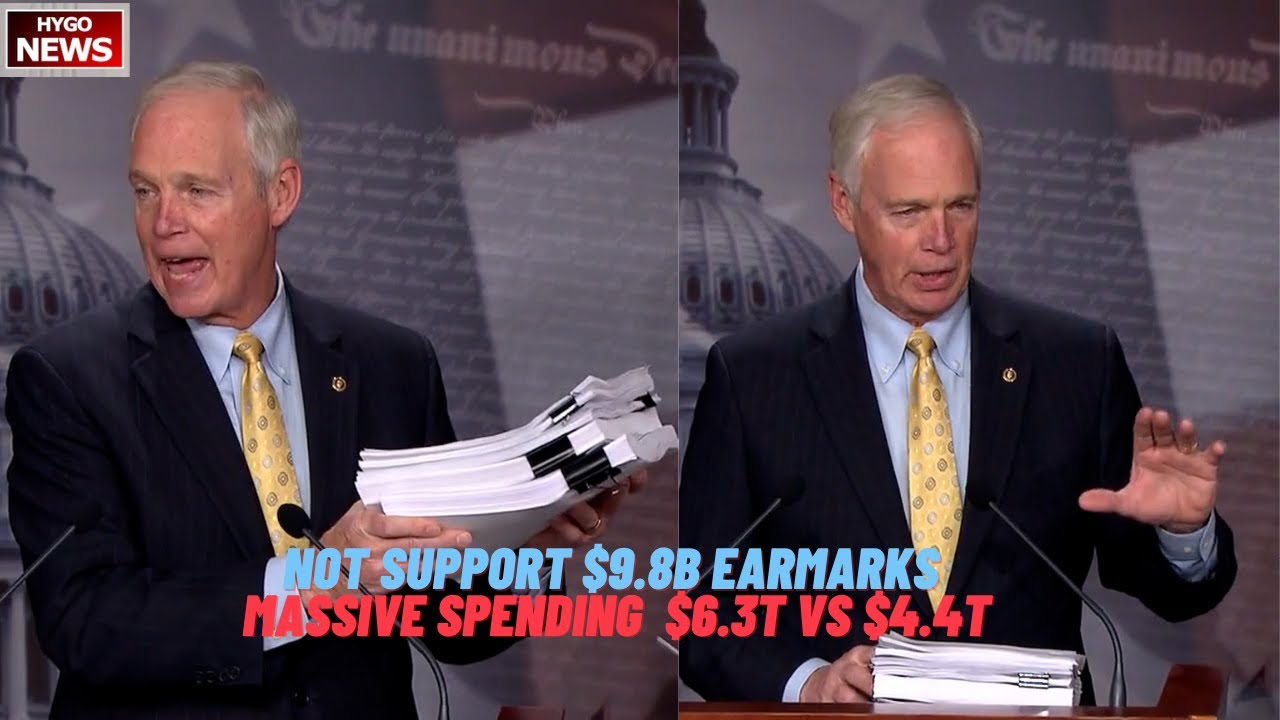On 12/20/2022, U.S. Sen. Ron Johnson (R-Wis.) was joined by Sens. Rick Scott (R-Fla.), Mike Lee (R-Utah), Mike Braun (R-Ind.) and Rand Paul (R-Ky.) in a press conference to oppose the $1.7 trillion, 4,000+ page omnibus spending bill and argue in favor of additional amendments. Sen. Johnson offered an amendment to eliminate all earmarks, totaling $9.8 billion in spending, from the omnibus bill. “There are, let me get the exact numbers, 9.8 billion dollars worth of earmarks. Thousands of individual projects here, both Democrat and Republican. It is interesting to note on the Republican side, we actually have a conference resolution that we don’t support earmarks. Well, we’re supporting over 4 billion dollars worth. Democrats are getting 5.4 billion dollars worth of earmarks. This is the gateway drug to the massive deficit spending, to the mortgaging of our children’s futures. It has to stop, which is why I’m going to offer an amendment to eliminate all those earmarks in this massive omnibus spending bill,” the senator said.
Sen. Johnson said, “I think what I found most disconcerting about this discussion, this debate, this process is the whistling past the graveyard nature of it. We’re talking about this is a big win in terms of, you know, conservatism and for Republicans that we’re getting a greater increase in defense spending.
“One of the things I’ve been pointing out, because of the massive inflation, because a dollar that we all held at the start of the Biden administration is worth less than 88 cents, the 858 billion dollars we’re getting on defense is literally worth only 754 billion dollars in January of 2021 dollars. That’s how much inflation has eroded the value of all spending, including defense spending.
“But the fact that nobody talks about the numbers, I mean, in total, the macro numbers. I thought it was interesting last week, because I was asking my colleagues and quite honestly a number of you reporters, just the simple question – do you know how much we spent last year? And the blank stares I got from most people. I’m still asking that question. I think people are getting a little educated, so now they’re starting to answer it but the answer is 6.3 trillion dollars last year. To compare that to before the pandemic, in 2019, we spent 4.4 trillion.
“This, the discretionary side, less than 70% of what we spend, is gonna be 1.65 trillion dollars, which is 23% more than the 1.3 trillion dollars we spent in 2019. Again, that is a massive increase. My concern is overall federal spending will probably be about 6 trillion dollars for the fiscal year. Again, 6 trillion versus a baseline just three years ago of 4.4 trillion.
“Something’s gotta give. At some point, we do hit a debt crisis – and I would argue, you know, 7% plus inflation with really no ending in sight is certainly an inkling of what that debt crisis is going to look like, and how that is going to devastate Americans in all areas of the income spectrum, but particularly people at the lower end who spend their money, their disposable income on things that have actually risen at a higher rate than 7%.
“The amendment that I’ll be asking for and that Senator Schumer agreed to last week ,would be to eliminate all the earmarks. I’ve got my own prop here. So that’s the entire omnibus. This is the language on earmarks only. There are, let me get the exact numbers, 9.8 billion dollars worth of earmarks. Thousands of individual projects here, both Democrat and Republican. It is interesting to note on the Republican side, we actually have a conference resolution that we don’t support earmarks. Well, we’re supporting over 4 billion dollars worth. Democrats are getting 5.4 billion dollars worth of earmarks. This is the gateway drug to the massive deficit spending, to the mortgaging of our children’s futures. It has to stop, which is why I’m going to offer an amendment to eliminate all those earmarks in this massive omnibus spending bill.”
https://facebook.com/HygoNewsUSA/videos/580487807226466/
Resolution not support earmarks? but $9.8B earmarks; massive omnibus spending last year $6.3T vs $4.4T

